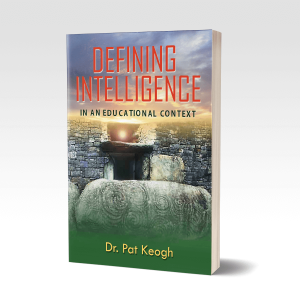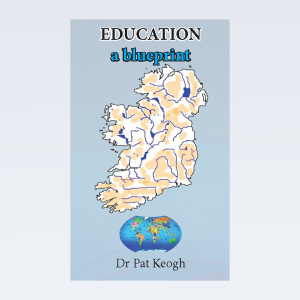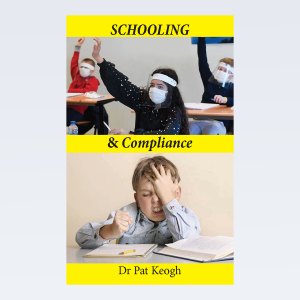Description
PONDER is the first of a two-part compilation of articles. REFLECT is the second. There are twenty-one articles in total; ten in PONDER and eleven in REFLECT Those articles have been written at various times over a thirty-year period. Many of them have been published in Teachers’ journals in Ireland. The topics covered should be of interest and of practical benefit to teachers, both to trainee teachers and those at the coal-face in the classroom and to education administrators too, particularly those in the Primary sector
We all want to learn and are curious about the world; where we came from, where we are and where we are going. It is in childhood that we are most curious about the world around us and want to learn new things. Occasionally, we find a child that has no interest in learning and is unwilling to partake in schoolwork. That is not because that child does not want to learn; it is because s/he dislikes the stuff we are dishing out and consequently refuses to cooperate and partake in schoolwork.
We must accept that the child is more important than the Curriculum. The person sitting at the dinner table is more important than the dinner on the table. A person will enjoy the dinner if s/he has an appetite and if the food is well presented. The same applies in the classroom. The teacher must stimulate an interest in the lesson, create an appetite to learn and then present the material in such a way that the child will be eager to see, hear and partake in the lesson presented. Since every child is unique, each one will have different interests. As teachers, we must do all we can to understand and get into the mind of each individual child.
Too many children are conditioned or indoctrinated to behave or believe in ways that they will never question. Many people plough through life like robots, accepting and believing what they hear, in media presentations and from persuasive people in authority, without question. Marketing strategists target people’s weaknesses. They prey on the person’s natural instinct to seek pleasure and avoid pain.
Child-centred education gives the child precedence over established systems of education and methods of teaching. The child is more important than the curriculum. Children must be taught to think for themselves. The child cannot be seen as just a number in the class.
Soldiers and armies are the pawns or robots of someone else’s agenda. Schools have an ethos, a philosophy with aims and objectives that they strive to achieve, and they establish numerous policies to ensure cohesion. But, the over-riding objective should center on the value of each individual child. The moral in the story below might illustrate this:
A gentleman on holidays at a seaside resort enjoyed taking regular strolls on the beach. The first morning he noticed a lady sitting on a rock among many rocks at the end of the sandy stretch of beach where he walked. The tide was washing in thousands of shellfish and bashing them against the rocks. She was picking up some and throwing them back into the sea. The gentleman came for a walk again later that day. The tide was out. The lady wasn’t there.
The following day he came for his walk again. This time the tide was coming in. As he neared the rocks at the end of the beach, he saw that the lady was there again doing the same thing. As the days went on, he observed that the lady came to the rocks at the end of the strand with the same objective, to save the lives of some of those shellfish, as they were dashed against the rocks by the incoming tide.
The gentleman’s holidays were coming to an end, so he decided to approach the lady. “Good morning”, he said, and then asked: “What are you doing?”- “I’m saving the lives of some of these poor shellfish”, she answered. “But”, replied the gentleman, “there are hundreds of thousands of those shellfish being bashed and killed every minute, what you are doing doesn’t matter, does it?”
Picking up another one that was just about to be bashed to death or gobbled up by the thousands of seagulls that hovered above the rocks, she answered, as she threw it back into the ocean, “Well! IT MATTERS TO THIS ONE, doesn’t it”? In agreement the gentleman then picked up a shellfish and before throwing it into the receding waves, as she had been doing, he replied; yes! And THIS ONE MATTERS TOO. We must think that way about every child in the classroom.







Reviews
There are no reviews yet.